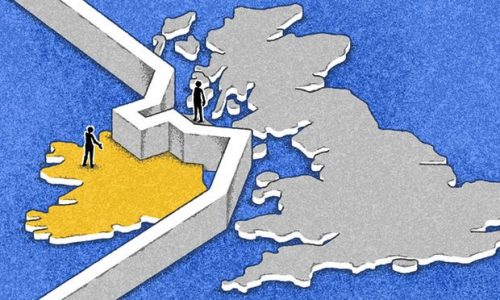The Church in the North will continue to resist efforts to divide the community even if a hard border follows a no-deal Brexit, Derry’s Bishop Donal McKeown has said.
Speaking against the background of a UNESCO-backed report that claims young people in the North would be groomed into violence by extremist and terrorist organisations following the imposition of a hard-border, Dr McKeown warned that sectarian tensions could be taken advantage of.
“There’s a number of concerns about the whole Brexit thing,” he told The Irish Catholic. “One is the economic effects, one is the existential effect, in other words the uncertainty about the future for young people, and one would be the political effect, because as we all know all the research shows that sectarianism is a resource that is used by people in order to keep their tribes in line.”
“It’s not something that happens. It’s something that’s useful to certain groups,” Dr McKeown continued.
“There’s always the possibility that people with other agendas exploit the potential for division. That’s the reality of human nature.”
Stressing, however, that the Church will continue to work against such agendas, the bishop said: “It’s possible to build hope for the future, and we reject anyone who wants to build division.”
Violence
Dr McKeown’s comments come following a study by the chairs of two UNESCO committees, which found that a return to some level of violence is inevitable if a hard border is introduced. The study, by Pennsylvania State University’s Prof. Mark Brennan and NUI Galway’s Prof. Pat Dolan, found that the generation who have grown up since the Good Friday Agreement has little memory of the harm caused during the Troubles.
Clogher priest Fr Jimmy McPhillips, parish priest of Lisnakea, Co. Fermanagh, said that a hard border could definitely lead to a resurgence of violence.
“Living here in a border area, there’s definitely a major concern that this could all kick off again, because the memories of the people in this area during the Trouble times was of the British army and permanent checkpoints, and of other mobile checkpoints from the UDR and the RUC, people have very bad memories of all that,” he said.
“If there’s going to be a hard border they’re obviously going to have to man it, and that will without doubt encourage those who are of a different view to politics to reengage again. I’ve no doubt about that.”


 Greg Daly
Greg Daly
